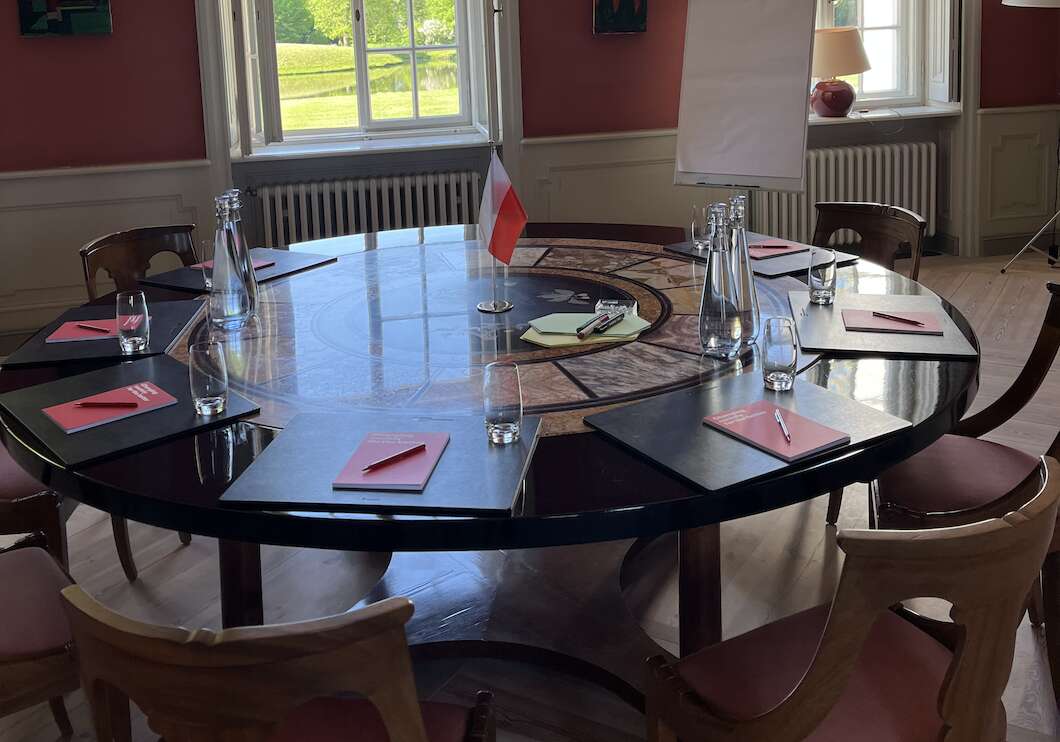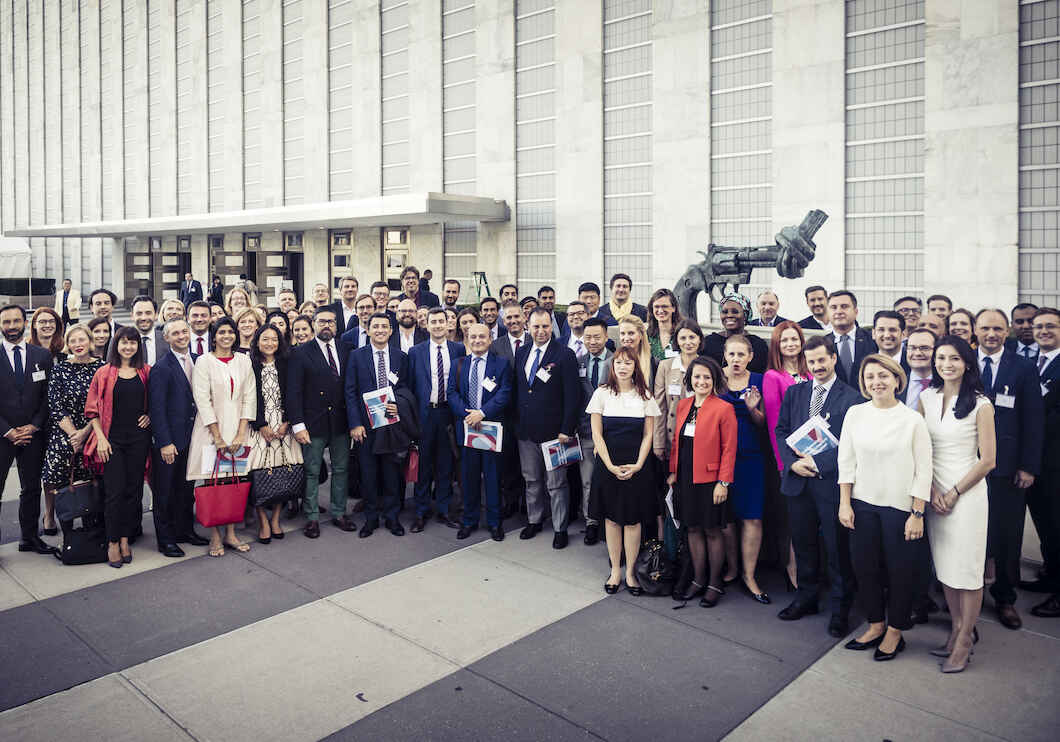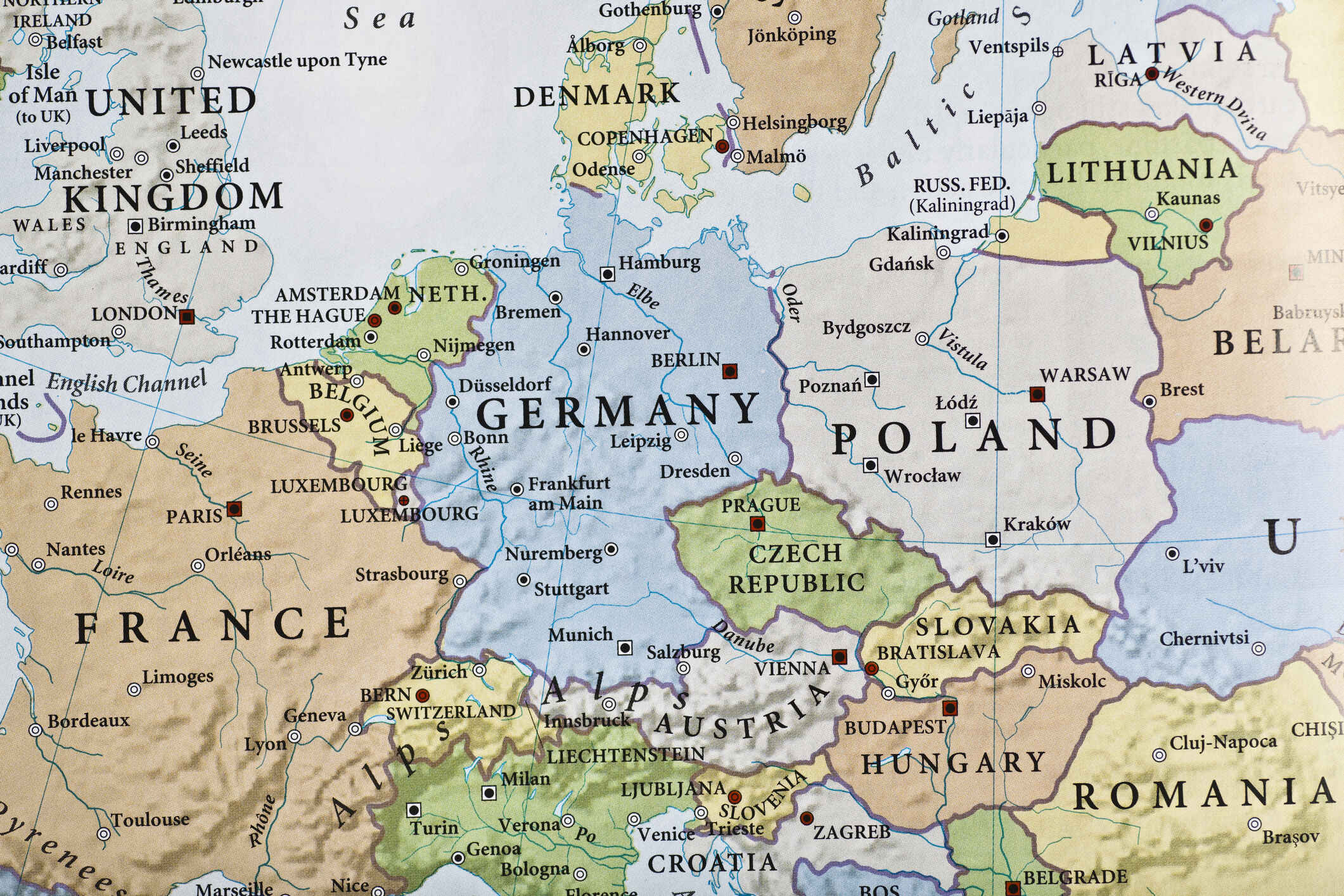
Weimar Task Force on the
European Security Order
Weimar Task Force on the European Security Order
Russia’s invasion of Ukraine marks a historical turning point. Looking ahead, European countries will have to come up with a new vision of how the future European security order should look like. Which norms and rules should underpin it? What roles will there be for organisations like the EU, NATO, or the OSCE? In finding answers to these questions, France, Poland, and Germany will have a significant role to play. For this purpose, we initiated the Weimar Task Force on the European Security Order in February 2022.
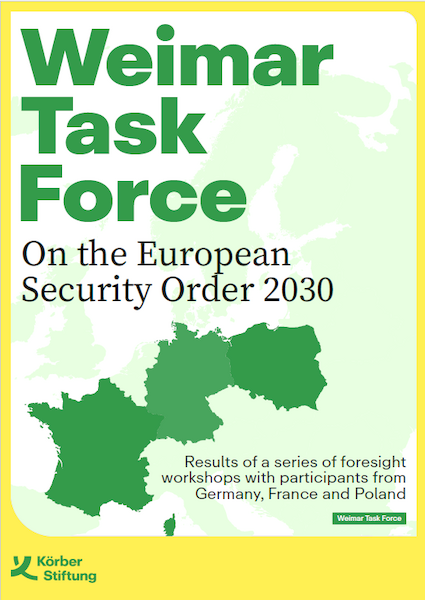
“Europe is at a historic turning point in its history...We are aware that the Poles, the Germans, and the French bear significant responsibility for the success of sustainable structures of the European neighbourhood.”
Quelle: Joint Declaration by the Foreign Ministers of France, Poland, and Germany
Weimar, 29 August 1991
Contact
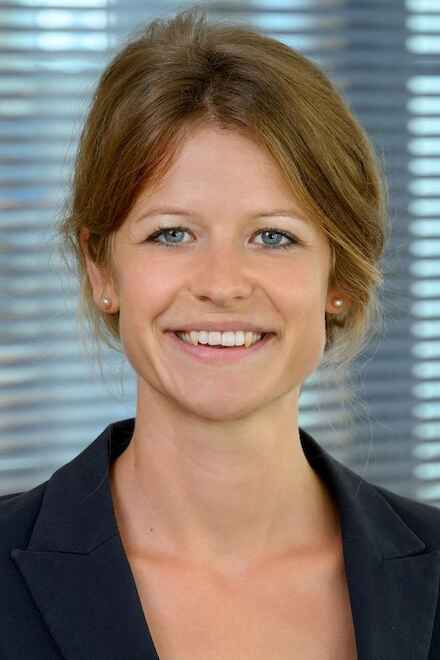
Alisa Vogt
Körber Network Foreign Policy, Munich Young Leaders


